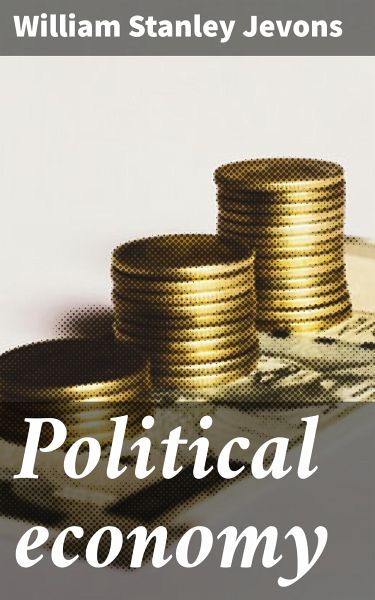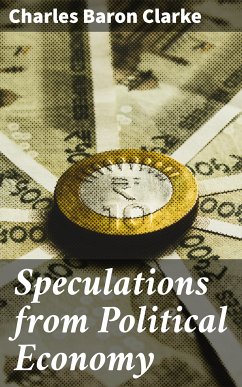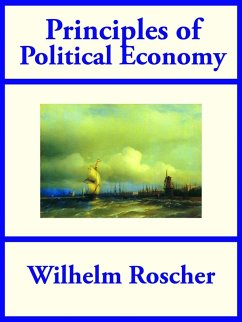
Political economy (eBook, ePUB)
Exploring Economic Principles and Theories in the 19th Century
Versandkostenfrei!
Sofort per Download lieferbar
2,49 €
inkl. MwSt.
Weitere Ausgaben:

PAYBACK Punkte
0 °P sammeln!
In "Political Economy," William Stanley Jevons delivers a groundbreaking exploration of economic principles that intertwines rigorous analytical thought with practical applications. Jevons adopts a methodological approach, employing inductive reasoning and a systematic examination of the principles of economics, which was relatively novel at the time of its publication in the late 19th century. The book intricately dissects the relationships between supply, demand, and production, while also introducing the concept of utility and its pivotal role in decision-making processes. This work stands ...
In "Political Economy," William Stanley Jevons delivers a groundbreaking exploration of economic principles that intertwines rigorous analytical thought with practical applications. Jevons adopts a methodological approach, employing inductive reasoning and a systematic examination of the principles of economics, which was relatively novel at the time of its publication in the late 19th century. The book intricately dissects the relationships between supply, demand, and production, while also introducing the concept of utility and its pivotal role in decision-making processes. This work stands as a significant contribution to both classical and marginal utility theories, situating itself within the broader context of the economic transformations occurring in industrializing England. William Stanley Jevons, a philosopher and economist, was deeply influenced by the rapid social and economic changes of his time, including the impacts of the Industrial Revolution. His diverse intellectual background encompassed metaphysics, logic, and economics, enabling him to view economic phenomena through a multi-faceted lens. His convictions about the necessity of a scientific approach to economics were propelled by his belief in the potential for human improvement through enlightened economic practices. "Political Economy" is highly recommended for those seeking to understand the foundations of modern economic theory. It provides invaluable insights that are essential for students, economists, and anyone interested in the evolution of economic thought. Jevons'Äôs eloquent prose and logical rigor inspire critical examination of economic realities, making this work a timeless reference in the field.
Dieser Download kann aus rechtlichen Gründen nur mit Rechnungsadresse in A, B, BG, CY, CZ, D, DK, EW, E, FIN, F, GR, H, IRL, I, LT, L, LR, M, NL, PL, P, R, S, SLO, SK ausgeliefert werden.













